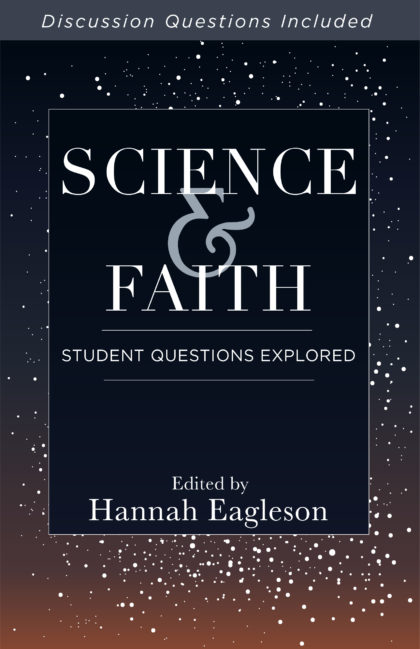
The biggest development for ESN this year on the topic of science was the publishing of Science & Faith: Student Questions Explored. The book collects and expands on the STEAM (Science & Theology for Emerging Adult Ministries) series of posts here on the blog. Students submitted questions, and answers were provided by a range of scholars from across the sciences and other relevant disciplines like history, theology and philosophy. Those responses were taken back to student groups for discussion and feedback, all of which fed into the final book. So you can be confident in the practical value of its materials, particularly for stimulating conversations in group settings, student-filled or otherwise.
We also had a bumper crop of book reviews and discussions related to science and science fiction. Here’s a rundown in case you missed any.
- Programming the Universe by Seth Lloyd on how computation is central to how the universe works & with discussion of ideas like the simulation hypothesis
- A three part look at The Revolutionary Genius of Plants by Stefano Mancuso who writes about recent discoveries in plant biology and how they can inspire technology for addressing climate change and interplanetary exploration
- C. Christopher Smith’s How the Body of Christ Talks which launches from the body metaphor for the church into theological and practical teaching on the discipline of conversation
- Underbug: An Obsessive Tale of Termites and Technology by Lisa Margonelli on termite biology and the unfinished quest to harness it for sustainable fuel production
- Melanie Mitchell’s Complexity: A Guided Tour which introduces complexity science, a sort of antithesis to reductionism that explores the interactions between components and the resulting dynamics
- A look at the large tech companies driving AI research and application and how to regulate them for maximal societal benefit via The Big Nine: How the Tech Titans & Their Thinking Machines Could Warp Humanity by Amy Webb
- Slime: How Algae Created Us, Plague Us, and Just Might Save Us by Ruth Kassinger who digs into the history, present and future of our relationship to algae
- The sci-fi novel Vessel by Lisa Nichols, a story about the possibility of contacting extraterrestial life and about alienation at home
We launched a sci-fi film festival which will continue into the new year. I’ve been looking at the thematic ideas and cultural impact of notable science fiction films in conversation with various scholar-fans. So far I’ve chatted about canon and continuity in Star Wars: Episode I – The Phantom Menace with Mike Beidler, parenting at the end of the world in I Am Mother with Sam Blair, and pedagogical entertainment and identity in The Matrix with Mike Beidler. And while not part of the film festival series, I also wrote about Unicorn Store, Tolkien and Avengers: Endgame.
It’s great that we can get together like this on the blog, and it is also good to engage with other scholars in person from time to time. I had the chance to attend the BioLogos conference on science and faith earlier this year and a new (to me) event called θeoCon which combines genre storytelling scholarship with theological reflections. And while I was not able to attend, I cataloged some of the recorded highlights from this year’s meeting of the American Scientific Affiliation.
Finally, the end of a year (and decade, depending on who you ask) is a frequent time for looking back and looking ahead. In that vein, there were several posts this year on the topic of where we as humans came from (“Welcome to the Human Club”, “The Skinny on Genes”, “Family Reunion in Botswana?”, and “The Force of Cuteness”) and what the future might bring in terms of life elsewhere (“It’s Life Jim, But Not As We Know It”, “All That You Can’t Leave Behind”, and “Employees, Wash Your Hands Before Returning to the Moon”).
And now I will wish you all a Merry Christmas, Happy New Year, and Happy Holidays. I will be on hiatus for the next two weeks and resume posting on January 8, 2020.
Andy has worn many hats in his life. He knows this is a dreadfully clichéd notion, but since it is also literally true he uses it anyway. Among his current metaphorical hats: husband of one wife, father of two teenagers, reader of science fiction and science fact, enthusiast of contemporary symphonic music, and chief science officer. Previous metaphorical hats include: comp bio postdoc, molecular biology grad student, InterVarsity chapter president (that one came with a literal hat), music store clerk, house painter, and mosquito trapper. Among his more unique literal hats: British bobby, captain’s hats (of varying levels of authenticity) of several specific vessels, a deerstalker from 221B Baker St, and a railroad engineer’s cap. His monthly Science in Review is drawn from his weekly Science Corner posts — Wednesdays, 8am (Eastern) on the Emerging Scholars Network Blog. His book Faith across the Multiverse is available from Hendrickson.

Leave a Reply